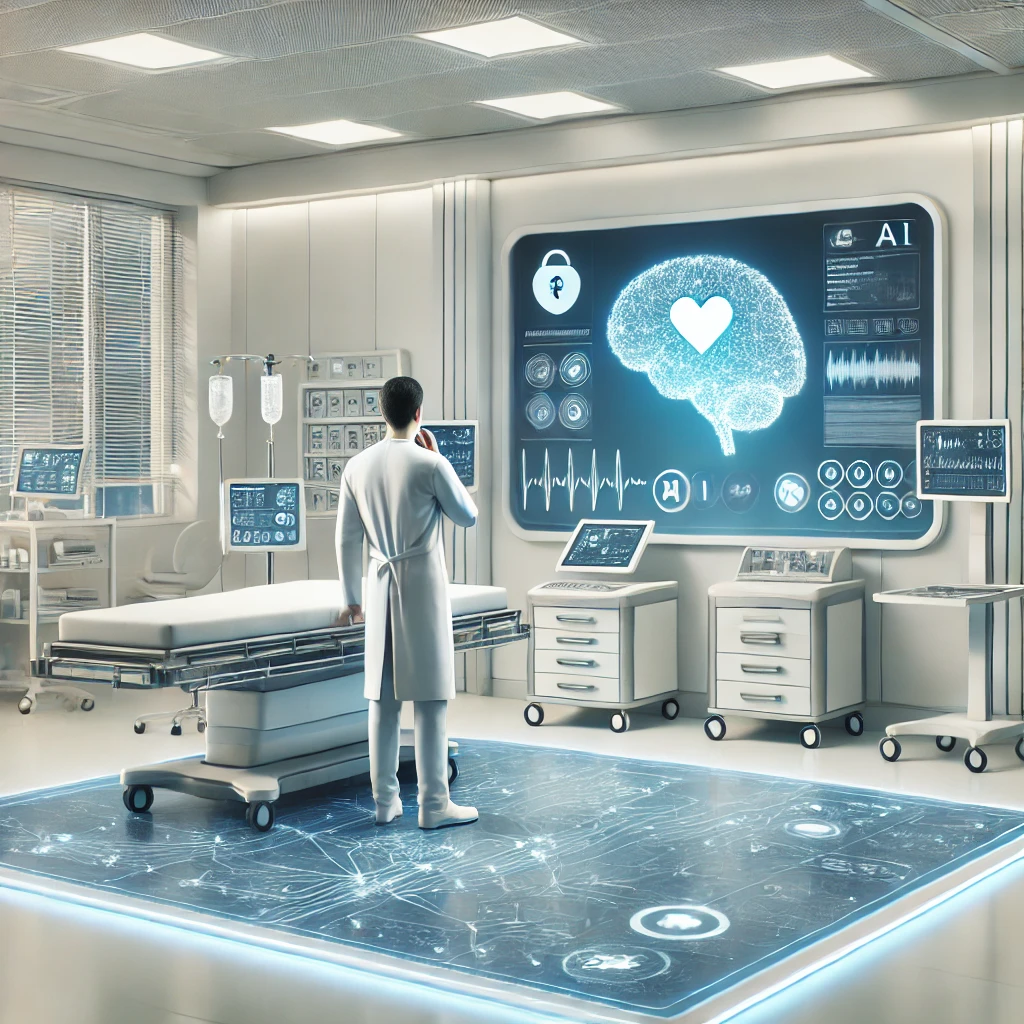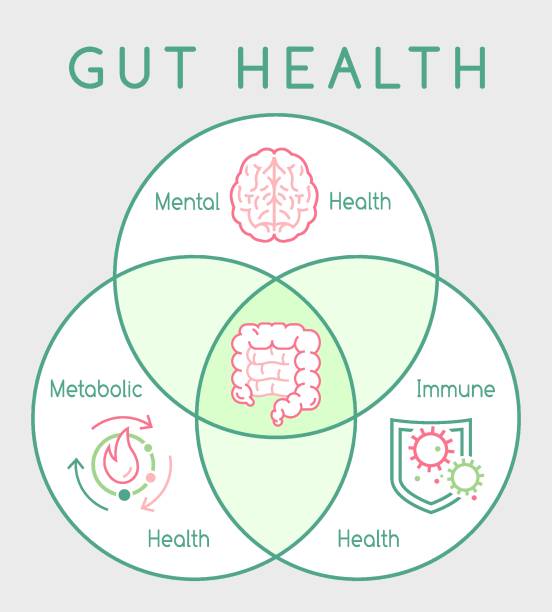
Artificial intelligence (AI) is reshaping every facet of modern healthcare. From diagnostics to drug discovery, from personalized treatment to hospital workflow optimization, AI technologies are driving a profound transformation in how care is delivered and managed.
In 2025, AI is not a futuristic concept in medicine—it’s already deeply embedded in daily practice. This article explores the key ways AI is revolutionizing the healthcare sector, the challenges it presents, and the future it promises.
SEO keywords: AI in healthcare 2025, artificial intelligence in medicine, AI diagnostics, healthcare automation, personalized treatment AI, medical imaging AI, predictive healthcare analytics
1. AI in Medical Diagnostics
1.1 Early Detection with Unmatched Accuracy
AI-powered diagnostic tools can now detect conditions such as cancer, pneumonia, sepsis, and diabetic retinopathy with accuracy levels matching or exceeding human specialists.
Deep learning models are trained on millions of medical images (X-rays, MRIs, CT scans) to identify anomalies that might be missed by the human eye.
Examples:
- AI detecting breast cancer in mammograms up to 2 years earlier
- Algorithms identifying COVID-19 patterns in lung scans in under 30 seconds
1.2 Pathology and Genomics
AI tools analyze tissue samples and genetic data at scale. They can:
- Spot cancer mutations in DNA faster than manual methods
- Suggest targeted therapies based on genomic profiles
- Support large-scale clinical research through pattern recognition
2. Personalized Medicine Powered by AI
2.1 Tailored Treatment Plans
AI enables precision medicine by analyzing patient data (medical history, genomics, lifestyle) to create individualized treatment strategies.
Rather than relying solely on population-level guidelines, AI systems propose custom protocols based on predicted drug response and risk factors.
2.2 Predictive Risk Modeling
Hospitals use AI to predict which patients are at high risk of complications, readmission, or deterioration.
Common applications include:
- Heart failure risk models
- Sepsis early-warning systems
- Fall-risk prediction in elderly patients
3. AI in Drug Discovery and Clinical Trials
3.1 Accelerating Drug Development
AI models simulate how molecules will interact with targets, dramatically speeding up the drug discovery timeline—from years to months.
Tools like DeepMind’s AlphaFold have unlocked protein folding patterns that were previously unsolved, opening new doors in molecular biology.
3.2 Smarter Clinical Trials
AI helps design adaptive trials by:
- Identifying suitable patient groups
- Monitoring adverse reactions in real time
- Predicting trial success rates before launch
This reduces costs, increases safety, and shortens time to market for life-saving therapies.
4. Medical Imaging and Radiology
4.1 AI as a Radiologist’s Co-Pilot
Radiologists now work alongside AI tools that pre-analyze scans, flag suspicious findings, and prioritize urgent cases. This dramatically improves efficiency and reduces error.
Some hospitals report:
- Up to 50% faster reporting times
- Reduced diagnostic variability between practitioners
4.2 Advanced Segmentation and Reconstruction
AI enhances the resolution of imaging scans while reducing required radiation dosage. It also assists in 3D reconstruction, helping with surgery planning and tumor monitoring.
5. Virtual Health Assistants and Chatbots
5.1 AI-Powered Patient Interaction
Healthcare bots can now:
- Answer common medical questions
- Schedule appointments
- Send medication reminders
- Triage symptoms before appointments
This reduces pressure on administrative staff and improves patient engagement, especially for chronic care management.
5.2 Remote Monitoring with Wearables
AI interprets data from smartwatches, glucose monitors, and ECG patches. It can detect abnormal heart rhythms, warn of dehydration, and even suggest behavioral adjustments.
6. AI in Hospital Operations and Workflow Optimization
6.1 Resource Management
Hospitals use AI to:
- Predict patient admission surges
- Optimize staffing levels
- Manage inventory (beds, ventilators, PPE)
This leads to cost savings and more efficient care delivery—especially during pandemics or seasonal spikes.
6.2 Intelligent Scheduling
AI streamlines OR scheduling, reduces patient wait times, and balances physician workloads. Predictive algorithms consider case complexity, team availability, and recovery projections.
7. Ethical AI and Regulatory Considerations
7.1 Bias in Medical AI
If AI is trained on biased data (e.g., over-representing one demographic), it can lead to skewed decisions. In healthcare, this could literally be life-threatening.
Therefore, fairness, inclusivity, and continuous auditing are critical in medical AI development.
7.2 Explainability and Trust
“Black box” models are not enough—clinicians need to understand why AI is recommending a diagnosis or treatment. Explainable AI frameworks help build trust and ensure accountability.
7.3 Regulatory Evolution
Agencies like the FDA and EMA are developing new frameworks for AI validation, approval, and monitoring. Tools used in clinical settings must demonstrate not just performance, but reproducibility and safety.
8. AI in Mental Health and Behavioral Medicine
8.1 Emotion Recognition and Support Bots
Natural language processing (NLP) tools are used to analyze speech, tone, and text to detect signs of depression, anxiety, or cognitive decline. AI chatbots provide cognitive behavioral therapy (CBT) to patients on-demand.
8.2 Personalized Mental Health Plans
AI systems suggest custom interventions—therapy modules, meditation plans, social connection activities—based on individual behavioral data.
9. Challenges and Limitations
Even with its promise, AI in healthcare faces hurdles:
- Data Privacy: Health data is extremely sensitive and highly regulated.
- Integration: Many legacy hospital systems are incompatible with modern AI tools.
- Cost of Implementation: Small clinics may lack the budget to adopt cutting-edge AI.
- Resistance to Change: Clinicians may be skeptical or fear replacement by machines.
Solving these issues requires thoughtful governance, collaboration between stakeholders, and continuous education.
10. The Future of AI in Healthcare
Looking ahead, the healthcare sector is moving toward:
- Fully AI-assisted surgeries
- Real-time diagnostic apps on smartphones
- AI-curated medical literature summaries for doctors
- Digital twins of patients for risk simulation
- Autonomous health monitoring with embedded sensors
The combination of data + AI + human expertise promises a safer, more efficient, and personalized future for global health.







